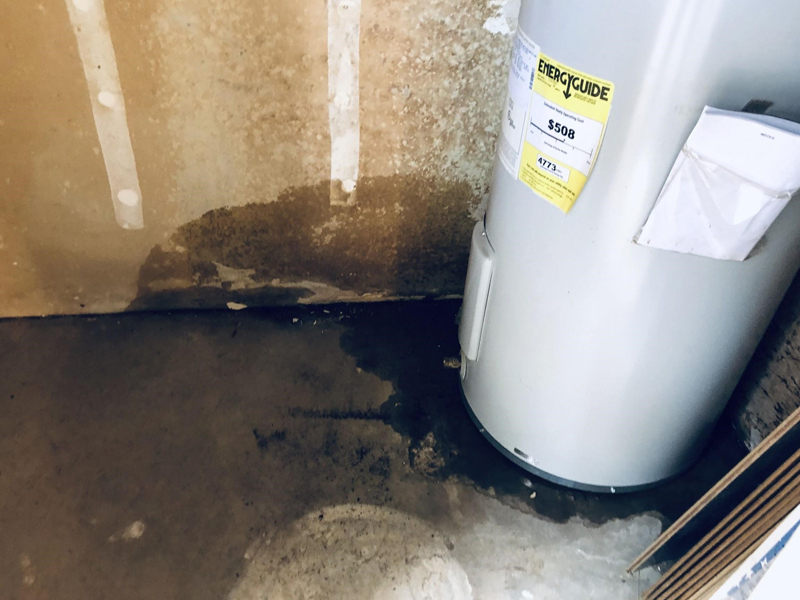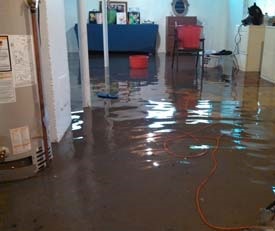Crucial Measures Residential Property Owners Need to Implement While Addressing Malfunctioning Water Heaters
Crucial Measures Residential Property Owners Need to Implement While Addressing Malfunctioning Water Heaters
Blog Article
They are making a number of great observations on the subject of What Do You Do When Your Water Heater Bursts? in general in this article just below.

Whether it lies in the basement or a separate room, damaged hot water heater can trigger tension. A typical device holds 80 gallons, so an overnight leak will result in a flooding. This causes major home damages with drenched walls and floorings. Having no warm water supply is additionally troublesome. If you are handling these concerns, keep in mind of the following:
Shut Off Source Of Power
Prior to calling the plumber, shut off a gas water heating unit by turning the temperature level dial. This will protect against electrocution, especially if there is a leak as water is a conductor. Usually, the home heating element shuts off when the water hits a details temperature level.
Cut Off the Cold Water Supply
Cut off the storage tanks faucet water supply from the resource. This goes from your main water line into the container. When your storage tank remains in good condition, the cold water stops filling out when the storage tank is full. Because it is leaking, the water will certainly proceed to flow. Shut the valve discovered at the top of the heating unit. Turn this clockwise to close it off. You need to transform off that major water supply line outside your home if you can not locate it or reach it.
Call the Plumber
After doing the initial 2 safety and security steps, you must call your plumber to come right away to take care of a ruptured water heater. There are normally indications that your aging water heating system has debris build-up in the interior.
Do not await major flooding to call the plumber. By then, you will certainly need to invest more to restore your residential or commercial property. Instead, as soon as you detect these indications, have actually a professional concerned evaluate your water heater give thanks to. Commonly, water heaters have a life expectancy of concerning 8 to 12 years. With regular assessment and upkeep, you can lengthen its life.
Clean Up Residential or commercial property
After calling the plumber, document damage by taking notes and pictures so you can claim your property owner's insurance. Remove any kind of standing water to protect against mold and mildew as well as mold development. If you have a submersible water pump, utilize that to drain the water.
Bear in mind, if you observe any concerns with your hot water heater, call the pros as soon as possible. You can not take this problem gently because a defective thermostat can elevate water temp to a dangerously high degree, resulting in unexpected burns. A damaged heater stress safety valve can likewise create an explosion. For best outcomes, get an annual check so your device gets evaluated, cleansed, drained pipes, as well as refilled, ensuring optimum efficiency.
Whether it is located in the cellar or a different area, broken water heaters can create stress. Before calling the plumber, shut off a gas water heater by turning the temperature level dial. After doing the first two safety actions, you should call your plumber to come right away to repair a burst water heater. If you have a completely submersible water pump, use that to drain pipes the water. Keep in mind, if you discover any issues with your water heating system, call the pros right away.
Is My Water Heater Broken?
The Water Heater is Old
No appliance will last forever. This includes a home’s water heater. During its lifespan, residents are going to face a situation where a new water heater installation will be necessary. The biggest problem with this is that most people are not sure when their water heater expires. Not knowing this can lead to serious risks if the unit begins to act up due to old age.
Most makes and models of water heaters will last between eight and 10 years. While 10 years is the age when water heater replacement is highly recommended, the need to replace the unit may occur before this time or after. If the unit doesn’t show any symptoms of a problem, it is a good idea to replace it at the 10-year mark (from the manufacture date).
Some of the symptoms that indicate a new unit is needed include rusting, leaks, noises, and a failure to heat up the water. Also, note that not all units have a 10-year life expectancy. The main exception to this rule is that a gas unit will last for six to eight years.
Rusty Heater Inlet Valve or Water
While steel is the strongest material on earth, it does have a weakness – rust. If corrosion occurs on a steel surface, it will begin to spread and eat through the steel in certain areas. On water tanks and pipes that are made of steel, rust is a warning sign of an impending leak.
The issue for many is trying to figure out if the rust is coming from the water heater or the pipes that lead to the faucet. If rust is seen, it is a clear indication that water heater service from the professionals is needed.
If rusty water appears out of the faucets in the bathtub or sink, it likely means a rusty water heater. If there is rust near the water inlet or the pressure relief valve, rust has likely developed inside the tank. If tap water appears rusty, it may be an issue with the pipes.
Strange Sounds from the Water Heater
Are there strange sounds coming from the tank? As a water heater gets older, rumbling noises may develop and get louder and louder as the water in the tank heats up. In homes where large amounts of hot water are used, the issue is likely going to be even more obvious when more serious issues arise. If there is a strange or loud noise coming from the unit, it is probably because of sediment buildup. A good way to remedy this problem is by flushing the heater. If this does not work, then a new unit may need to be installed.
Leaks
As a water heater gets closer to the end of its useful life, there is a higher chance there will be water around the tank. If there is water, this usually means leaks are occurring. Based on where the unit is located in the home, a leak may result in serious property damage.
Leaks are usually caused by expansions in the metal tank. The expansions occur as time passes and as the inside body of the tank is exposed to multiple heating cycles per day. When a fracture forms, the gap will be slight enough to hold the water in; however, in more serious situations, this will not be the case. If the tank is idle, the water will not leak but when the metal expands during each heating system, small amounts of water will get through the gap.

We hope you enjoyed our topic about How to Avoid a Broken Hot Water Heater. Many thanks for taking time to browse our short article. Don't hesitate to set aside a second to share this blog if you enjoyed it. I am grateful for your time. Visit us again soon.
Secure fix? Call. Report this page